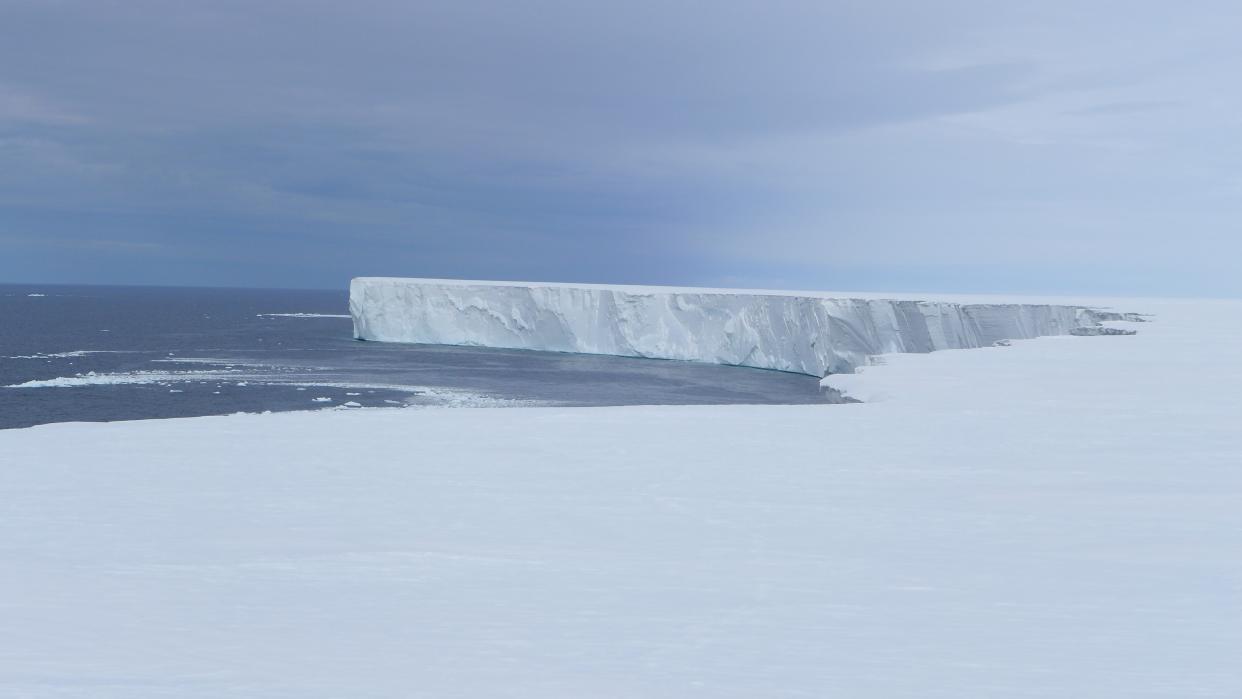World’s largest ice shelf ‘is melting ten times faster than expected’, experts warn

A huge Antarctic ice shelf the size of France is melting ten times faster than expecting – hinting that it’s more vulnerable to global warming than previously believed.
Loss of ice shelves removes a barrier to glaciers transporting water to the ocean, allowing sea levels to rise.
The researchers say that surface water heated by the sun appears to be accelerating the melting of the Ross Ice Shelf, a huge slab of ice which juts into the ocean.
A team from Cambridge University spent several years investigating how the Ross Ice Shelf’s north-west sector interacted with the ocean beneath it.

Former Cambridge scientist Dr Craig Stewart, now at the National Institute of Water and Atmospheric Research (NIWA) in New Zealand, said: ‘The stability of ice shelves is generally thought to be related to their exposure to warm deep ocean water, but we’ve found that solar heated surface water also plays a crucial role in melting ice shelves.’
The team took measurements of temperature, salinity, melt rate and ocean currents using instruments passed through an 850ft borehole.
Four years’ worth of data were also collected from an oceanographic mooring installed under the ice shelf.
Read more from Yahoo News UK:
Inspiration for Winnie the Pooh’s 100 Acre Wood on fire
Nigel Farage tells US audience Oldham has streets split by race
Met Office says no bank holiday heatwave
The instruments showed that surface water heated by the sun flowed into the cavity under the ice shelf, causing melt rates almost to triple in the summer.
Dr Stewart added: ‘Climate change is likely to result in less sea ice, and higher surface ocean temperatures in the Ross Sea, suggesting that melt rates in this region will increase in the future.’

 Yahoo News
Yahoo News 

